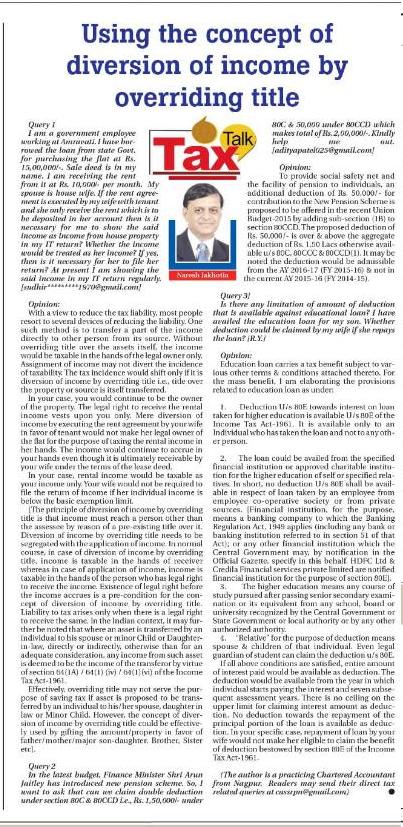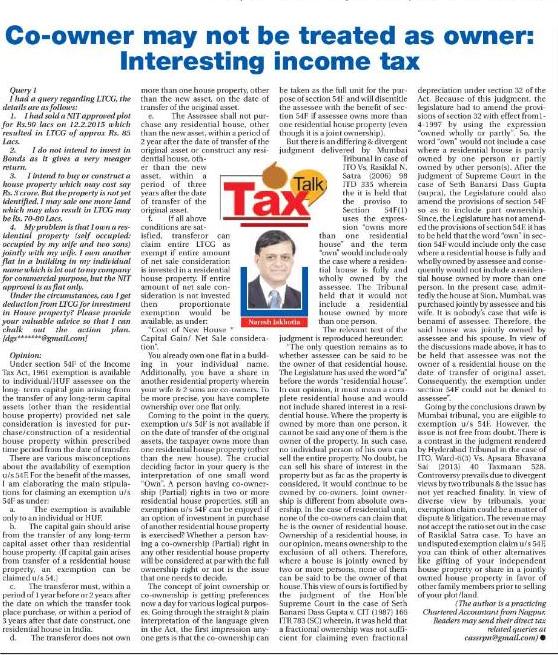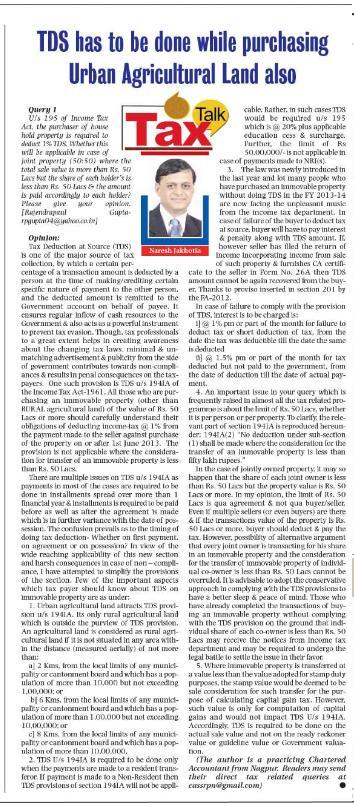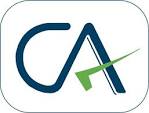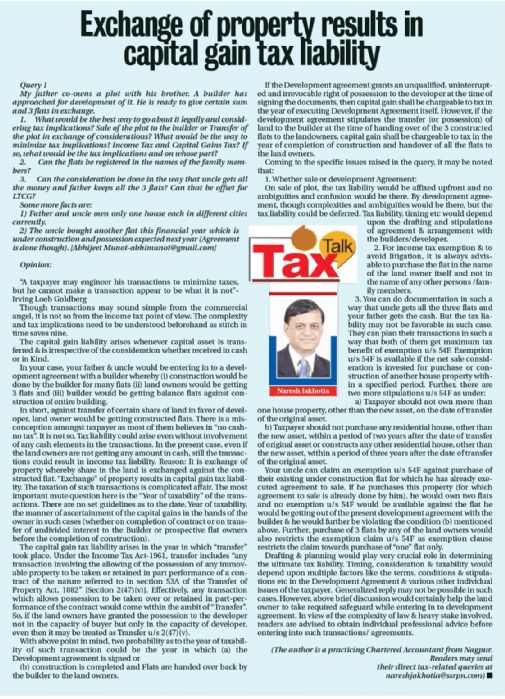Article Details
| File Statement of Financial Transactions (SFT) by 31st May 2017 |
|
TAX TALK-22.05.2017-THE HITAVADA TAX TALK CA. NARESH JAKHOTIA Chartered AccountantFile Statement of Financial Transactions (SFT) by 31st May 2017 To curb circulation of black money, filing of statement of financial transactions (SFT) has been made mandatory by different categories of taxpayers. We have received mail from income tax department asking to file the statement of financial transactions by 31/05/2017. What is SFT? Is it mandatory to file the SFT or it is the part of income tax return? Please elaborate in detail? [rao*****@gmail.com] Opinion: “Taxes grow without rain” -Old Jewish Proverb Widening the tax base & keeping a check on black money circulation are the key priorities of the Government. To keep track of high value transactions, CBDT has widened the norms to report certain high value transactions on annual basis. Earlier requirement of filing Annual Information Return (AIR) has now been totally replaced by Statement of Financial Transactions (SFT). SFT is a statement which is to be filed by various persons including banks, financial institutions, property registrar, companies, businessmen & professional liable to tax audit u/s 44AB. Salaried individuals are not required to file the newly introduced statement of financial transactions (SFT). More particularly, all the companies are now required to file SFT if it receives Rs. 10 Lakh or more towards share capital or as share application money. Companies are also required to report receipt from any person of an amount aggregating to Rs. 10 Lakh or more in a financial year for acquiring bonds or debentures issued by the company or institution (other than the amount received on account of renewal of the bond or debenture issued by that company. Further every listed company is required to report buy back of shares from any person (other than the shares bought in the open market) for an amount or value aggregating to Rs. 10 Lakh or more in a financial year. More stringent reporting requirements on cash transactions is incorporated in the laws. Every seller [who is required to get its books of accounts audited u/s 44AB of the Income Tax Act-1961] is now required to file an annual statement incorporating the details of all the purchasers making the payment of more than Rs. 2 Lakh in cash. Further, Banks are required to report (a) cash deposits or cash withdrawals (including through bearer's cheque) aggregating to Rs. 50 Lakh or more in a financial year, in or from one or more current A/c of a person (b) One or more time deposits (other than a time deposit made through renewal of another time deposit) of a person aggregating to Rs. 10 Lakh or more in a financial year of a person (c) Payments made by any person of an amount aggregating to (i) one lakh rupees or more in cash; or (ii) ten lakh rupees or more by any other mode, against bills raised in respect of one or more credit cards issued to that person, in a financial year (d) Payment made in cash for purchase of bank drafts or pay orders or banker's cheque of an amount aggregating to Rs 10 Lakh or more in a financial year (e) Cash deposits aggregating to Rs. 10 lakh or more in a financial year, in one or more accounts (other than a current account and time deposit) of a person. The due date for filing first such SFT is 31.05.2017. SFT is to be filed in Form No. 61A & is in addition to the regular Income tax returns. There is a penalty of Rs. 100 per day for delay & if the default continues even after receipt of notice, penalty of Rs 500/- per day would be there [Section 271FA]. Filing of inaccurate information will attract penalty of Rs 50,000/- [Section 271FAA]. Query 2] I am a senior citizen with no income. But I have my PAN number. I have never filed returns but in spite of submissions of 15G form in the bank, small amounts (mostly single digit rupee amounts) were deducted & then refunded in the account earlier. Now I am told I have to claim the refund. I have never had taxable income & hence never filed returns. Is it now mandatory/compulsory to submit income tax returns for nil income? [himanshudesai47@gmail.com] Opinion: There are occasions where the Tax Deduction at Source (TDS) is done by the payer despite submission of 15G/15H by the payee. If it so happens, the taxpayer can still demand the refund of TDS amount from the payer who are under an obligation not to deduct tax (TDS) after receipt of Form No. 15G/15H. However, getting back the refund of TDS amount from income tax department is indeed a tough and tedious task & so the deductor might unnecessary delay the refund request of the payee. Alternate option could be to file the income tax return & get back the refund from income tax department. Query 3]
Individual taxpayers are mandatorily required to file their income tax return if their total income before deduction (a) under Chapter VI-A (i.e., deduction towards LIC/PPF/NSC etc) & (b) Long term capital gain on sale of shares exempt u/s 10(38), exceeds the amount of the basic exemption limit. Even if income is below the basic exemption limit, one can still file the income tax return for claiming refund arising due to TDS or payment of advance taxes etc. Moreover, filing of income tax return within due date is also mandatory if the taxpayer wants to carry forward any losses suffered during the year. The benefit of carry forward of loss would not be available if taxpayers fails to file the return within due date. Till AY 2016-17, taxpayer was having a period of 2 years for filing of their income tax return which is now reduced to 1 year from AY 2017-18. In the first query: Filing the income tax return will not be required if her income is below the basic exemption limit. It is irrespective of submission of Form No. 15H. In the second query: Even if the interest received is above basic exemption limit, still return filing would not be mandatory if it gets below basic exemption limit after claiming deduction under Chapter VI-A. The author is a practicing Chartered Accountant from Nagpur. Readers may send their direct tax related queries at SSRPN & Co 10, Laxmi Vyankatesh Apartment C.A. Road, Telephone Exch. Square Nagpur-440008 or email it at nareshjakhotia@ssrpn.com] |
 |




.png)
